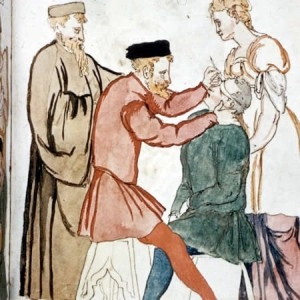My attention was caught by two recent publications in the blog of The Appendix (‘a quarterly journal of experimental and narrative history’). The first is ‘Interpreting “Physick”: The Familiar and Foreign Eighteenth-Century Body’, by Lindsay Keiter. The second, in reply to the former, is Daniel S. Goldberg on ‘The History of Pain’ [UPDATE: Goldberg’s piece is no longer available at its original location and I have not been able to track it down elsewhere).
Goldberg takes issue with Keiter’s assertion that ‘there was nothing available for mild, systemic pain relief in the eighteenth century’, frequently citing Esther Cohen, The Modulated Scream: Pain in Late Medieval Culture (University of Chicago Press, 2009) to show that pain management has a history going back much further than the eighteenth century. Samantha Sandassie weighs in on Goldberg’s side on Twitter, saying surgical casebooks & treatises contain a fair bit of information on pain management and noting early modern accounts such as those of Elizabeth Freke and Ralph Josselin.
This is, in a sense, a matter of nuance, rather than of absolutes; Sandassie herself shows pretty graphically in her own blog (Panacea: Musings on the History of Medicine) how the concept of pain in the medical context has changed over the centuries.
Goldberg goes on to discuss the issue of the effectiveness of pain management in eighteenth- and nineteenth-century contexts, arguing that modern conceptions of effectiveness and ‘what works’ cannot be applied to earlier periods. This approach emphasizes the perception of medical treatment and, again, the extent to which this is valid is a matter of degree. Benjamin Breen, editor of The Appendix, tweeted ‘on the other hand, the biological efficacy of drugs had a real historical role, no?‘ The main lessons I drew from the exchange were that Cohen’s work is probably worth a read and that the whole issue of premodern medical attitudes towards and treatment of pain is a complicated one. As far as I can see, Keiter didn’t get it fundamentally wrong; she merely overstated her case in an attempt to make a valid point.



Comments